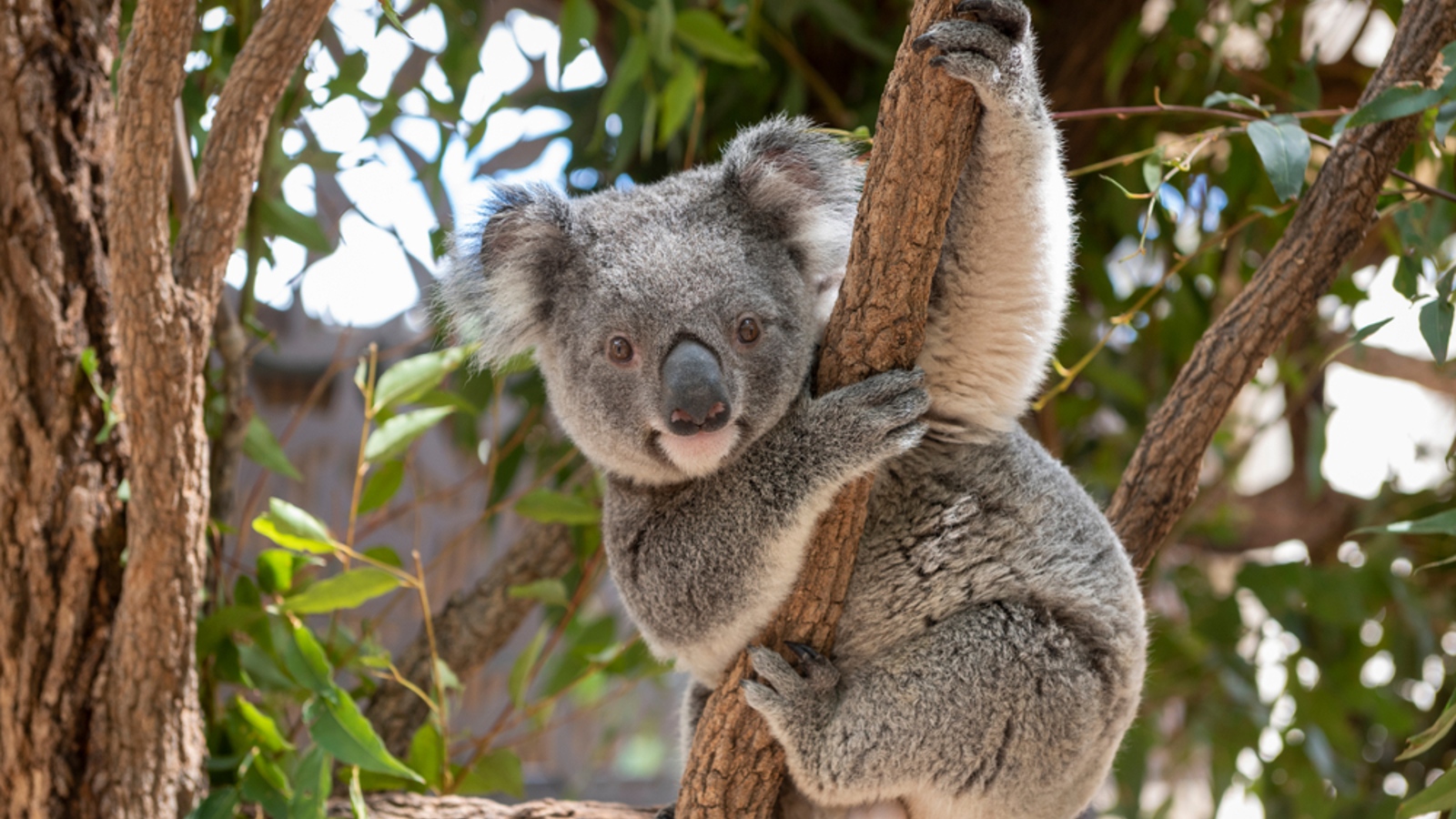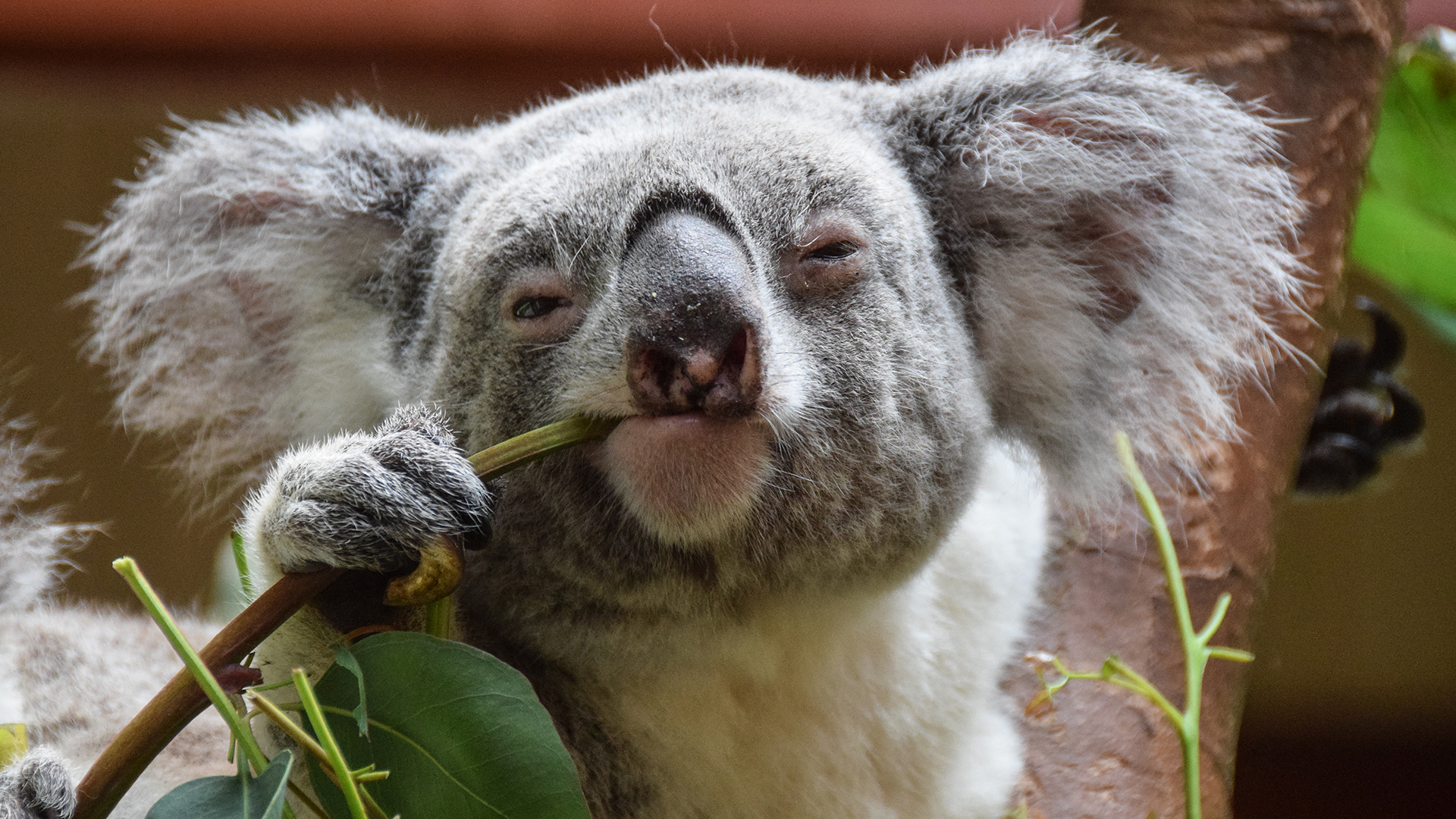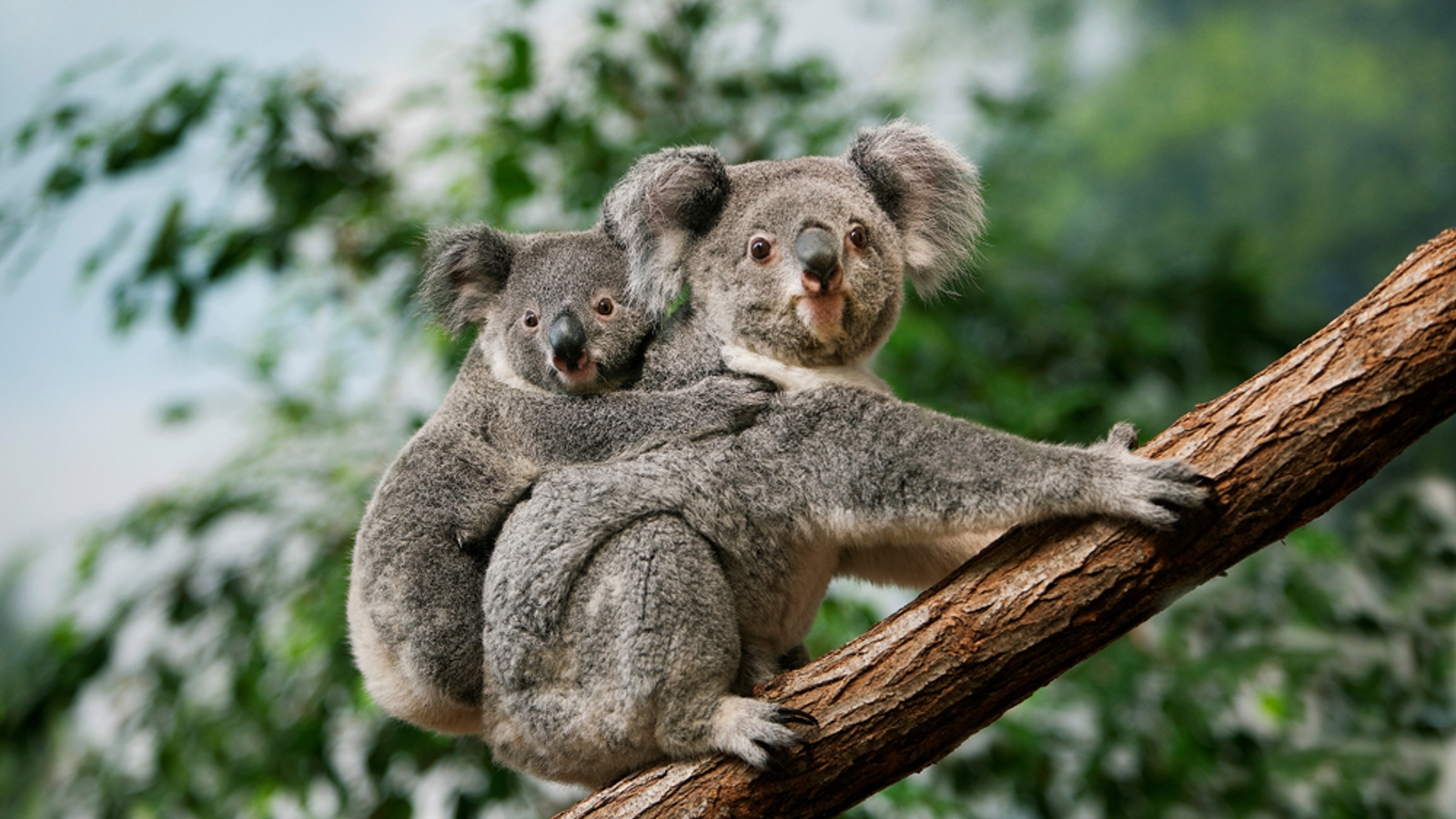Chlamydia is killing Australia's koalas, but ambitious new project could stop the spread
A new vaccine could protect the marsupials from the sexually transmitted disease, which can lead to blindness, infertility and death.
Conservationists in Australia have begun vaccinating wild koalas against a highly contagious and deadly form of chlamydia.
In recent decades, the marsupials have been plagued with a destructive strain of chlamydia, which belongs to a closely related species of the sexually-transmitted disease in humans.
In koalas (Phascolarctos cinereus), chlamydia causes gastrointestinal problems, urinary tract infections and conjunctivitis that eventually leads to blindness, according to Wildlife Health Australia. Blind and sick koalas are unable to climb trees to eat or escape predators and can die as a result.
The disease can also cause infertility in females due to large cysts growing in their ovaries, which has massively decreased koala birth rates. "It's been devastating — there's very, very low fertility," Mathew Crowther, a conservation biologist at the University of Sydney who monitors koala populations, told AP News. "You hardly see any babies."
Related: Mammals with pouches are 'more evolved' than humans — sort of
In 2020, researchers developed a vaccine for the disease, which was successfully given to some captive and rescued koalas. But its effectiveness at stopping the spread of chlamydia in the wild hasn’t been tested until now.
In an ongoing trial, researchers are catching and vaccinating wild koalas in New South Wales, AP News reported. The percentage of infected koalas in the state has jumped from an estimated 10% in 2008 to a likely 80% today. As a result, the species was listed as endangered in New South Wales in early 2022.
Get the world’s most fascinating discoveries delivered straight to your inbox.
Catching koalas
To vaccinate the koalas, conservationists must first catch them, which is a fairly straightforward yet time-consuming endeavour.
The conservationists construct circular enclosures around the bases of eucalyptus trees that koalas are spotted in. When the koalas eventually come down, they are forced to go through trapdoors and into cages. But it can take hours or even days for the treehugging marsupials to make their way down to the ground.
Once they’ve caught the animals, veterinarians anaesthetize the koalas and administer a shot of the vaccine. The koalas are then kept under observation for 24 hours after waking up, to confirm there are no side effects.
Related: Wild Tasmanian devils born on mainland Australia for 1st time in 3,000 years
The koalas are then marked with a spot of bright pink paint on the back of their necks and are released where they were originally caught. The first successfully vaccinated koala was released on March 9.
Containing the spread
Like in humans, chlamydia is spread by sexual transmission, as well as from mother to child during pregnancy.
Scientists were initially unsure why chlamydia had spread so fastamong koalas over the past 15 years. But in 2018, researchers discovered that a large proportion of Chlamydia-positive koalas were also infected with a virus known as koala retrovirus type B, which can suppress their immune systems like the HIV virus does in humans. As a result, chalmydia can easily jump between individuals.
Chlamydia also spreads quickly because most medicines for the disease do not work on koalas. Enzymes in the marsupials' stomachs neutralize toxins found in their favorite food, eucalyptus. But these enzymes also neutralize antibiotics that would normally be used to treat chlamydia. In 2020, researchers developed a new antibiotic that could withstand the koalas’ enzymes and help fight chlamydia, but it is still difficult to find infected koalas and treat them in the wild.
The vaccine should help to stop the spread of the disease and enable vaccinated individuals to start producing more offspring.
Vaccinating wild animals is an expensive and time-consuming process that conservationists do not undertake lightly. But in this particular circumstance conservationists believe it’s likely the best way to protect koalas in the wild.
"Vaccination is an incredibly resource-intensive thing to do," Jacob Negrey, a biologist at Arizona State University and formerly at Wake Forest University School of Medicine in Australia who was not involved with the project, told AP News. "But because the effects of chlamydia are so debilitating, I think it's totally worth it."

Harry is a U.K.-based senior staff writer at Live Science. He studied marine biology at the University of Exeter before training to become a journalist. He covers a wide range of topics including space exploration, planetary science, space weather, climate change, animal behavior and paleontology. His recent work on the solar maximum won "best space submission" at the 2024 Aerospace Media Awards and was shortlisted in the "top scoop" category at the NCTJ Awards for Excellence in 2023. He also writes Live Science's weekly Earth from space series.
 Live Science Plus
Live Science Plus








